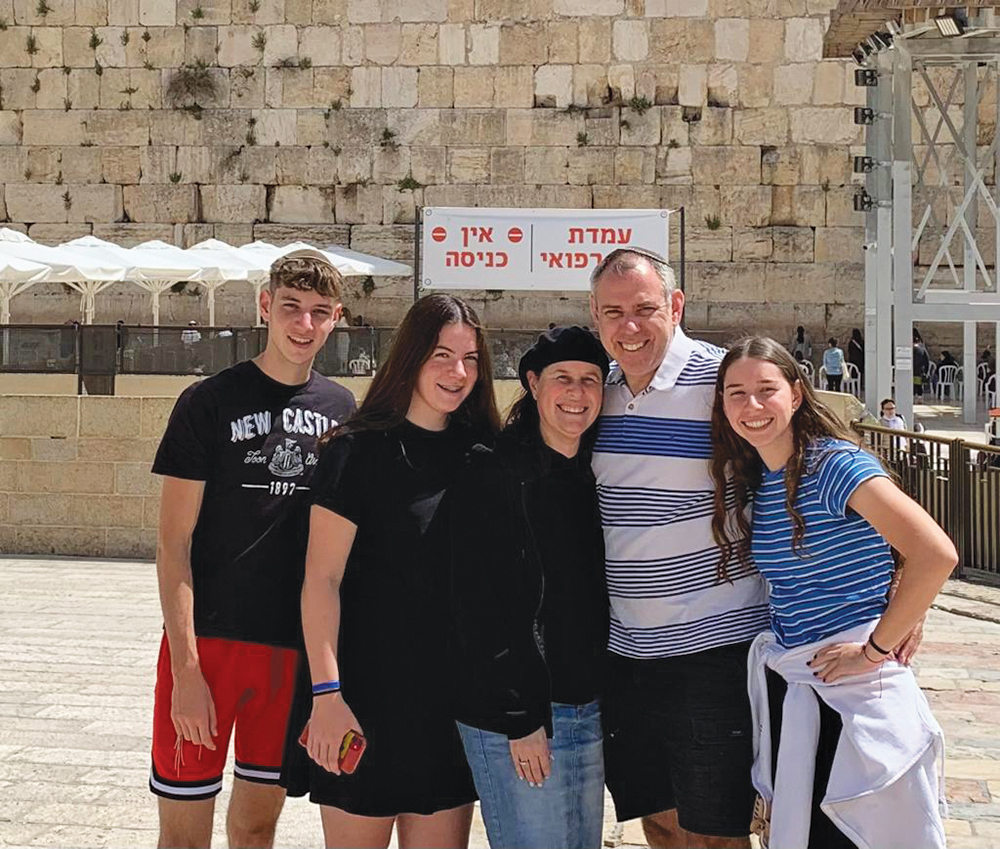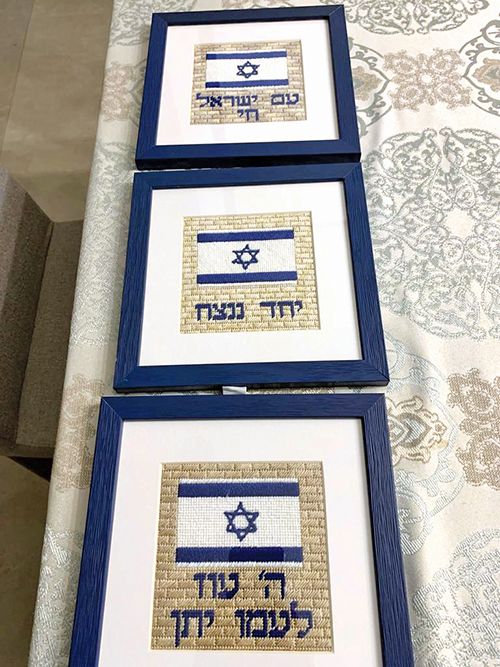
Ariela Herman, 52, made aliyah with her husband Ruby and their children Tobi, Ikey and Tali in August 2019 from Bergenfield. They live in Modi’in, where they have family and have also made friends that are like family.
The Jewish Link recently spoke with Ariela about her aliyah experience.
Where did you daven in Bergenfield and where did your kids go to school?
We davened at Rinat and the kids went to Yeshivat Noam and Tobi went to Maayanot for one year.
Did you come to Israel when you were younger?
I lived in Israel with my family for two years when I was in middle school and after high school at Yeshiva of Flatbush I came back here for the year to go to Michlalah. After that, we visited quite a lot because I have family who’s here. My sister had moved to Israel when she was younger and my brother and his family moved here four years before we did.
Did that time in Israel provide the spark for your eventual aliyah? Did your parents encourage aliyah when you were younger?
I think that was the real start of it. My parents are strong Zionists and they believe in Yishuv Haaretz. We probably would have stayed at the end of our family’s time here, but my parents had responsibilities back in the states. They made aliyah three years ago and we have a lot of extended family living in Israel.

Where did you go to college and get your advanced degrees?
I did my undergraduate and graduate degrees at Queens College and my doctorate at Teachers’ College at Columbia. My Israel experiences ended at that point but I always wanted to live in Israel.
When you and Ruby were dating, was aliyah a discussion?
We knew that it was something we were going to do one day but it took us 18 years to make our five-year plan happen.
How did your kids feel when you talked to them about moving to Israel? Was it a surprise or did you always discuss it as a family?
We had always discussed it and started getting serious about it three years before we came. They were not surprised, and Baruch Hashem, they were all on board.
How was their Hebrew and social acclimation and what are they up to these days?
They had good teachers and learned Hebrew and made friends while playing basketball too. Tobi is currently an instructor in the Air Force, Ikey is at Mechina and Tali is doing great in high school.
What do you do professionally?
I taught at Queens College for more than 25 years, even from Israel. My first year here, I was on sabbatical and then I taught on Zoom during COVID and commuted as well. I am retired from teaching college and now I focus on helping olim children get comfortable with spoken Hebrew through lessons and even through sports.
How has your life changed since the war started?
Ariela: It was very hard at the beginning to figure out how to help. Everybody was rushing to do different things and it was very hard to find one’s place. I found something really special to do. I collaborated with Rebecca Gilad at a place called “Gone Stitching.” They came up with a couple of designs of inspirational phrases which they would sell as a packet, but I wanted to do the needlepoint projects so I could be busy and engaged and not keep watching the news all the time. I sell my needlepoints to raise money to help and support Israelis who have been affected by the war — soldiers, evacuees and children of reserve soldiers. I have finished 24 needlepoints so far and have even started teaching others how to needlepoint so they can be part of my project.
What do you love about living in Israel?
The best thing for me is that you’re not hearing about events; you’re experiencing them. You’re not hearing about history; you’re experiencing history. Unfortunately, now we’re experiencing history in a difficult way, but I wouldn’t want to be anywhere else right now.
Do you have a message for anyone who’s considering making aliyah?
You have to prepare your children. There are ways to help children before coming but there will always be ups and downs. Also, all the olim want to pay it forward. Everyone wants to help because they were helped by somebody.
Do you think people should come now or should they wait until after the war?
I think in a world of the unknown, if you can come, just come. Israel is probably the only country where more people come during a war than leave, which says something. To be honest, I’m more concerned about what’s going on in the U.S. than I am about what’s happening here.
If you would like to get involved in the needlepoint project, please contact Ariela at arielaruby@gmail.com.
Aviva Zacks is a writer living in Israel who loves speaking to olim and hearing their stories. If you know of an oleh/olah who is interested in being interviewed for The Jewish Link, please email aviva@writehook.co.il.








